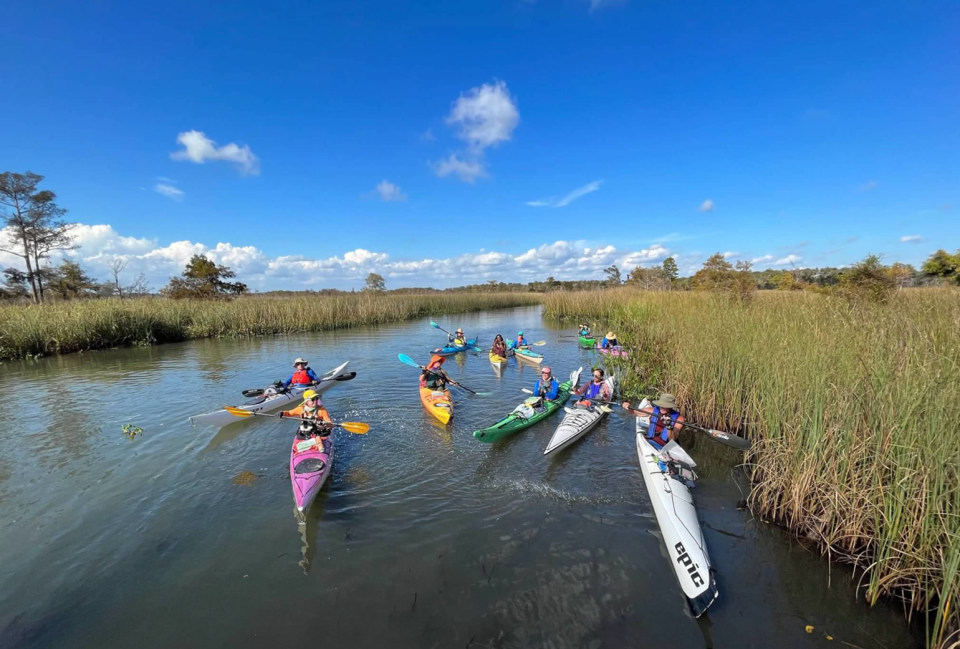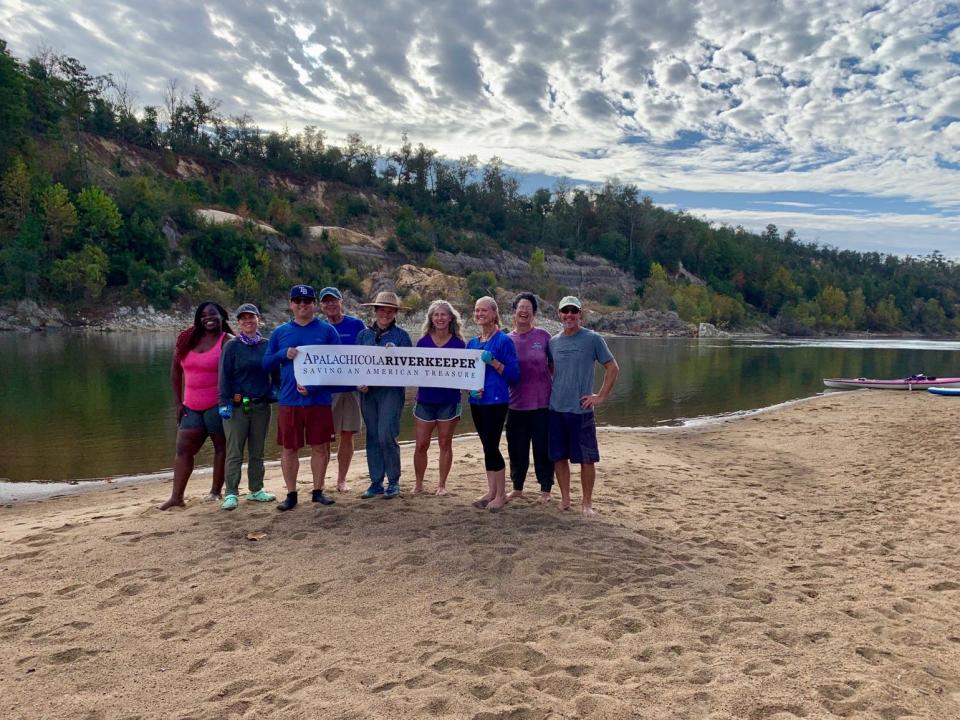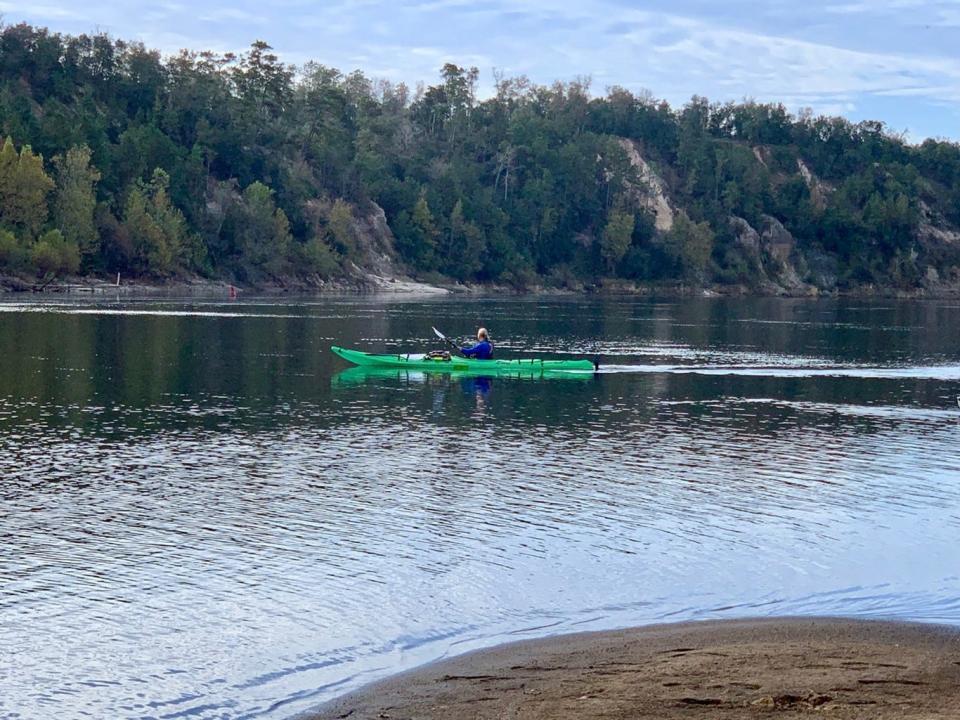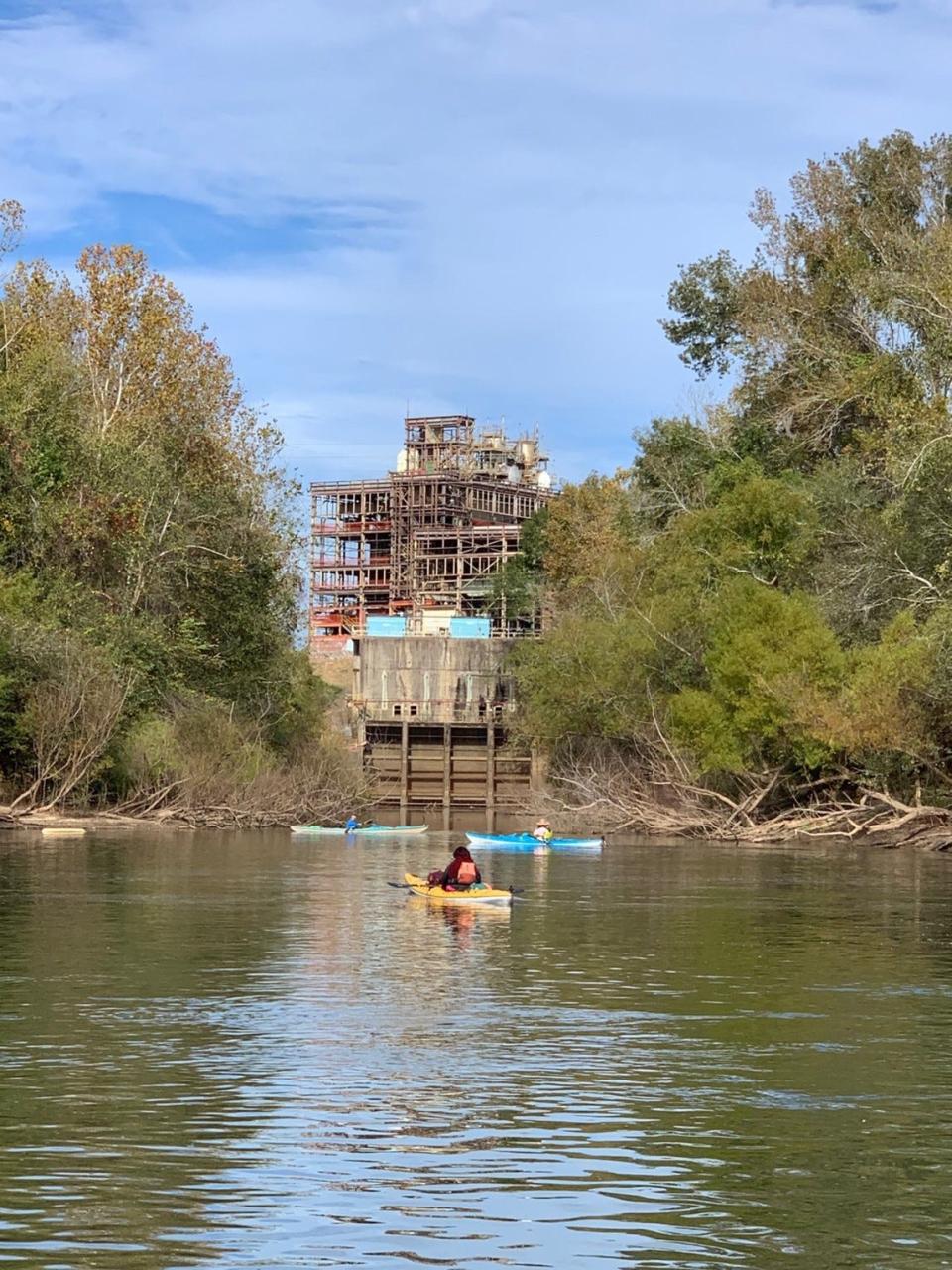107 miles to go: Volunteer kayaking team launches RiverTrek expedition
An adventurous group of volunteers who care deeply about Florida’s waterways, are putting that care into action on behalf of Apalachicola Riverkeeper, the independent nonprofit group that advocates for the protection and restoration of the Apalachicola River.

A kayaking team of 13 people will travel the entirety of the Apalachicola River, launching in Chattahoochee on Oct. 4 and arriving 5 days later into Apalachicola on Oct. 8. The group will camp on sandbars along the way, meeting with historians, biologists, and other experts to learn more about Florida’s notable Apalachicola River. Dubbed “RiverTrek,” the expedition is months in the making.
Volunteers selected for the RiverTrek team spend time in their respective communities raising awareness about the ecological significance of the Apalachicola River prior to the kayaking trip. They also organize fundraising activities with all donations supporting the advocacy, education, and outreach work of Apalachicola Riverkeeper.

The Apalachicola RiverTrek 2023 team includes: Georgia Ackerman (staff), Deb Bur, Paula Carroll, Dani Davis (staff), Susan Doyle, Rebecca Means, Caitlin McCauley, Mike Mendez, Angie Riviere, Chris Watkins, Mark Yeslow. Founding Riverkeeper, Susan Anderson and her spouse Roy Stanley, will also travel with the group.
The Apalachicola River is Florida’s largest river in volume of flow. With headwaters in the foothills of the Blue Ridge Mountains, the Apalachicola River is part of the Apalachicola-Chattahoochee-Flint rivers basin, shared by Alabama, Florida, and Georgia. The Flint and Chattahoochee Rivers are held back by Woodruff Dam (managed by the Army Corps of Engineers) creating Lake Seminole.

From Chattahoochee, Florida to the Gulf of Mexico, the Apalachicola River travels 107 miles where its life-giving nutrient rich water empties into the Apalachicola Bay, a state-designated Aquatic Preserve. Apalachicola Bay was once the wild oyster capital of Florida. Currently, Apalachicola Bay is closed to wild oyster harvesting while the State of Florida focuses on oyster habitat restoration efforts.

The Apalachicola River has several other special designations such as an Outstanding Florida Water, a National Scenic River Trail and a state paddling trail, also called a Blueway. The Apalachicola River and Bay region is also internationally recognized for its remarkable landscape that includes ravines and steep heads, and rich plant and animal biodiversity.
To learn more about the Apalachicola River, the work of Apalachicola Riverkeeper or meet the volunteer kayaking team, visit apalachicolariverkeeper.org.
This article originally appeared on Tallahassee Democrat: Volunteer kayaking team launches trip to advocate for Apalachicola